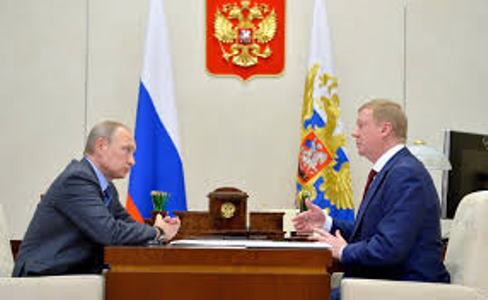
Anatoly Chubais, the Russian oligarch, Chairman of Rusnano and one of the main initiators of privatisation in the 1990s, warned Forbes magazine recently about the consequences of the pandemic and the global crisis of 2020
Anatoly Chubais declared there was a strategic risk for Russia, which is dependent on oil prices. In an interview with Forbes, he said that the current economic structure and technological structure are clearly outdated. According to Chubais, the cost of oil this year is unlikely to rise above $ 40 per barrel, and even optimistic forecasts say this. It will not be possible to get an income on the sale of raw materials as before. The only way, Chubais said, is the development of innovative technologies.
However, developed capitalist countries have long dominated the innovation market. Russia does not have the resources to develop innovative technologies. Start-ups and IT specialists try to leave Russia, as soon as possible, because there are no funds and conditions for the development of promising projects in Russia. During 2017, around10.6 million citizens of the Russian Federation left the country to work abroad.
The market for innovative technologies has long been divided up between developed countries and China. Because of this, the Russian advanced technologies industry simply cannot compete with other countries and is designed only for the domestic market.
Does Anatoly Chubais himself not know about this? Of course he knows. He spoke about this in January, complaining that the strategy for the development of innovative technologies had completely failed. In his words, it is only an attempt to make money again on corruption schemes for money laundering. Rosnano Corporation, whose chairman is Anatoly Chubais, is widely known for its nanotechnology developments, which, in reality, do not exist.
In 2010, Rusnano bought out a third of the shares of the failed British Plastic Logic corporation and invested $240 million into it. In 2011, Chubais presented President Putin with a version of an electronic textbook, with a flexible screen for Russian schools, which was developed by Plastic Logic. The first batch entered the schools for testing. However, as it turned out, it did not correspond to the quality specifications laid down by the authorities.
In total, 130 billion rubles were allocated for the creation of the Rusnano Corporation in 2007. In 2013, the Chamber of Accounts concluded that the investments did not qualify, as Rusnano financed companies were not related to nanotechnology. They were bankrupt companies and were also contributing to the creation of “one-day” firms.
“For the world as a whole, the blow will be very difficult and very serious,” Chubais added.
Heavy blow for Russia
The blow will not only be very heavy but hardest for Russia. The economic decline of Russia is predicted to be the worst since the 1992 privatisations initiated by Chubais. While the government and the oligarchs, in particular Chubais, more or less controlled that process, the current situation is hardly controlled, at all. This can be seen from the measures taken by the government to combat the crisis and the covid-19 epidemic.
In other matters, there is no problem for Chubais, because Rusnano was included in the list of corporations to which state aid will be issued first. In general, while millions of Russian workers were losing their jobs, the wealth of Russian oligarchs during the pandemic increased by $62 billion! Chubais warned of “political consequences, for sure and, God forbid, without shocks of a revolutionary nature”.
Naturally, while during the crisis period the largest billionaires are getting richer by the hundreds of billions, there are hundreds of millions of workers laid-off, and reduced to penury. Humiliated people all over the world will not let it stay like that. Karl Marx predicted constantly recurring and intensifying economic crises and also the consequences flowing from them. Who can oligarchs and billionaires rely on? Only on God!
The working class of Russia and worldwide must rely on its own collective strength and organisation, to fundamentally change society along socialist lines.
